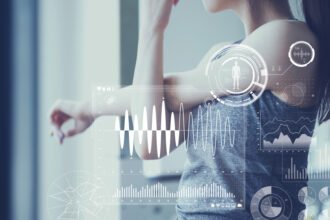This post was written by Greta Roberts, CEO, Talent Analytics, Corp. on 18 July 2012. Comment below!
After attending several analytics conferences over the last month, I’m beginning to understand an important nuance about the community we call “analytics” worked by “analytics professionals” or “data scientists.” It seems as if the defining boundary of our discipline is almost always that we data scientists apply ourselves to business, organizational, and market data.
This post was written by Greta Roberts, CEO, Talent Analytics, Corp. on 18 July 2012. Comment below!
After attending several analytics conferences over the last month, I’m beginning to understand an important nuance about the community we call “analytics” worked by “analytics professionals” or “data scientists.” It seems as if the defining boundary of our discipline is almost always that we data scientists apply ourselves to business, organizational, and market data.
The important nuance? Businesses, organizations, and markets all involve interactions between people. Always.
Several other domains use very similar computational techniques to look at purely physical things – the hard sciences and engineering. As an example, astrophysicists or metallurgists may use the same statistical programs as data scientists, but their world is very different. Their data does not involve humans. For example, the electrical lifespan of a battery doesn’t vary with human sentiments, though sometimes it may seem that way.
Since a data scientist’s work is typically in the service of learning about, bringing value to, and bringing change to an organization, we have to deal with people. It’s not about the size of our datasets – compare your data to Computational Fluid Dynamics data someday – but it’s that we are looking at these sometimes fickle, non-linear, yet often-predictable critters called employees or buyers or sellers.
Finance, in particular, is famous for “physics envy,” leading to very mathematical, yet sometimes fatally flawed models of market and ultimately human behavior. In the Analytics business, no matter how many physics Ph.D.’s we hire, our analytics professionals often only get one pass at the data – we can’t repeat experiments as if we are Edison looking for a light bulb filament.
Just because our ultimate subject matter (people) maybe influenced by Madonna one decade and Lady Gaga the next, does not make them impossible to model, analyze, and even predict. And since only people do the work and the buying, this analysis is very valuable with even small correlations.
Maybe this seems obvious, but I think it can sometimes be easy to fall into thinking about the “market” or “transactions” or “attrition” or “performance” in a more mechanistic way that forgets about the involvement of people making a Data Scientist’s work far more complicated than predicting the airflow over a wing.
The above nuance feels like an important one, to learn and to pass along as it highlights the unique, powerful and human side of our work. This concept may be lost in the seeming trivia of scanning social media text, but in fact the closer to humanity we are, the closer we are to being Data Scientists.
Originally published by International Institute for Analytics.
Greta Roberts is a Faculty Member of the IIA and CEO of Talent Analytics, Corp. Follow her on twitter @GretaRoberts.








